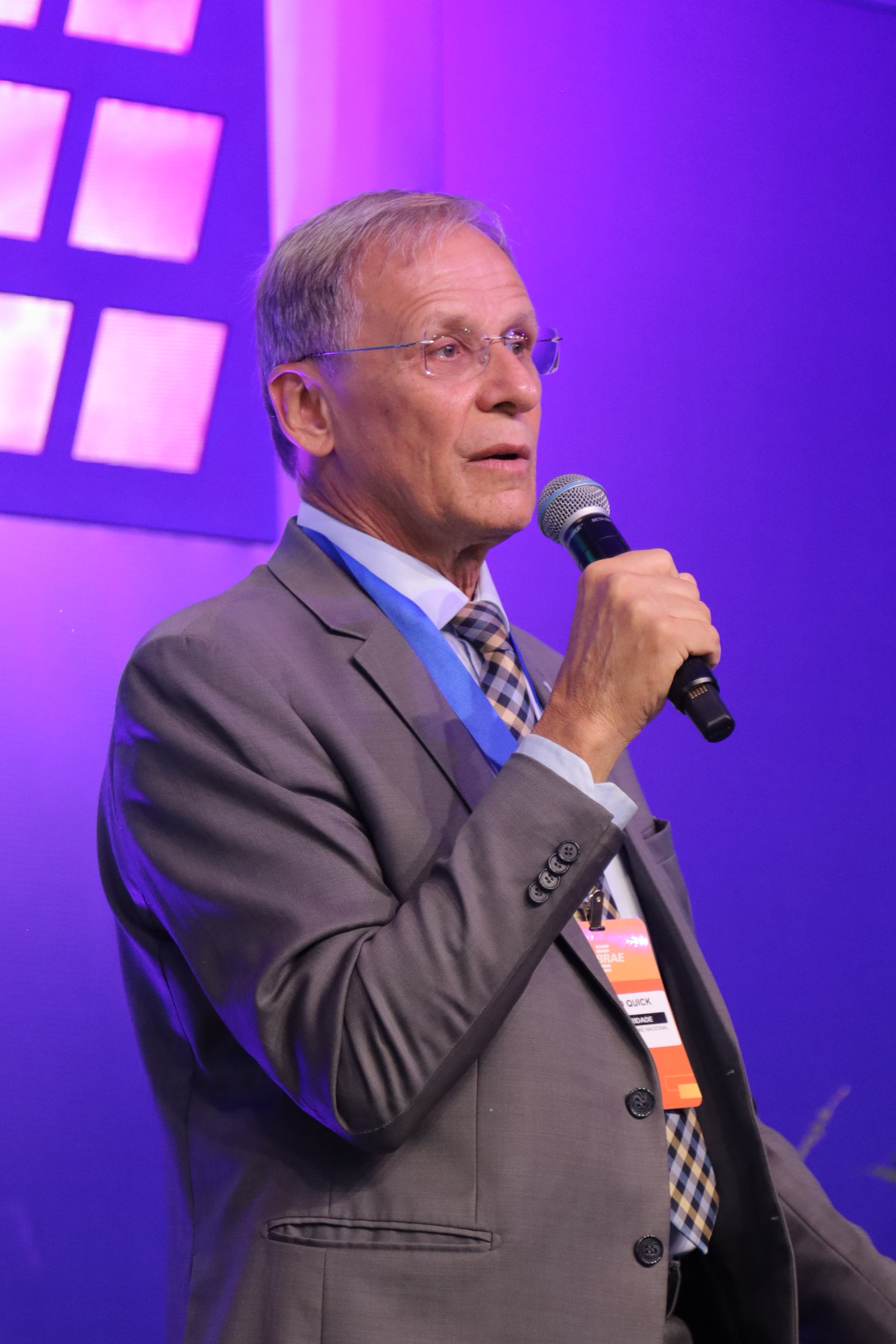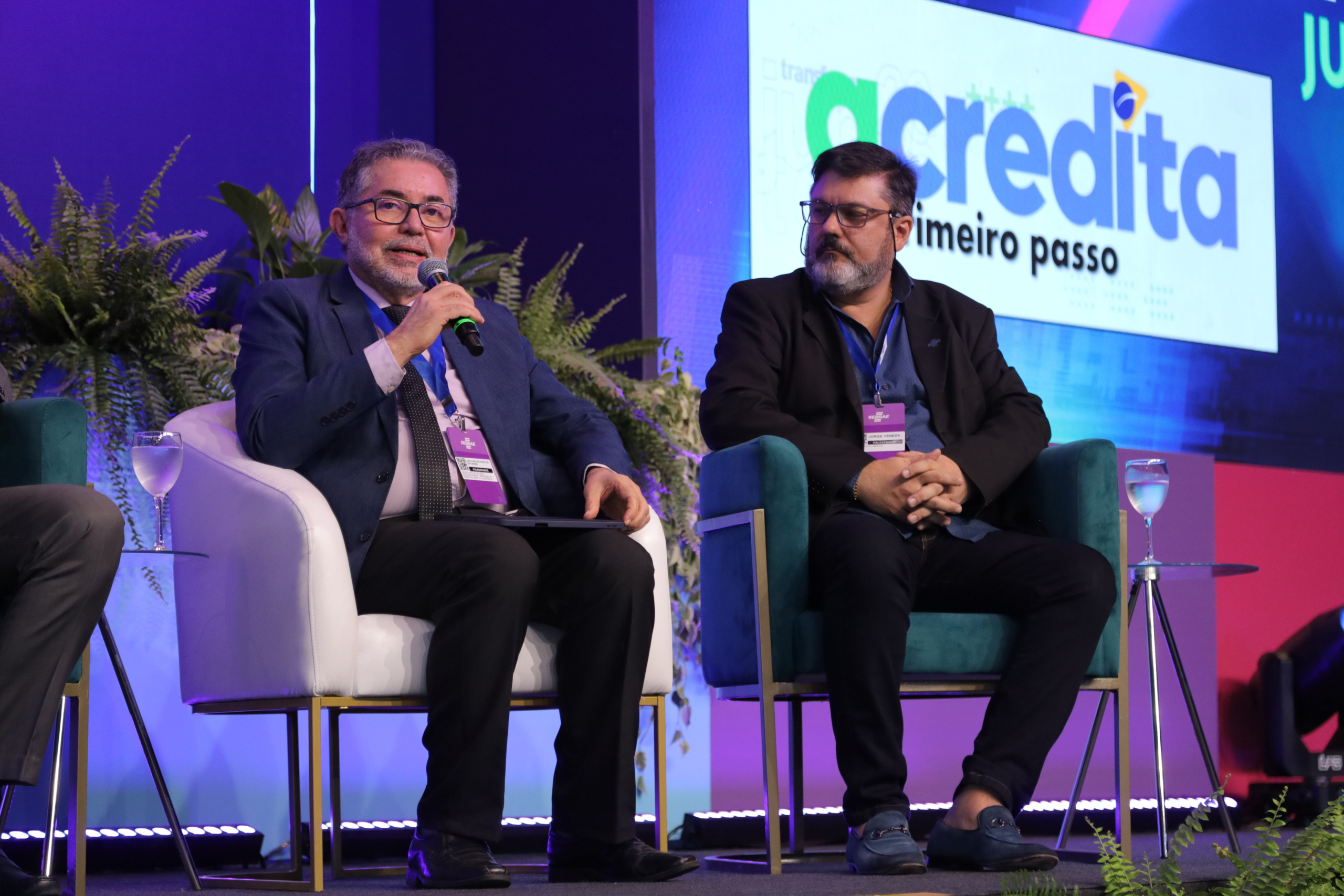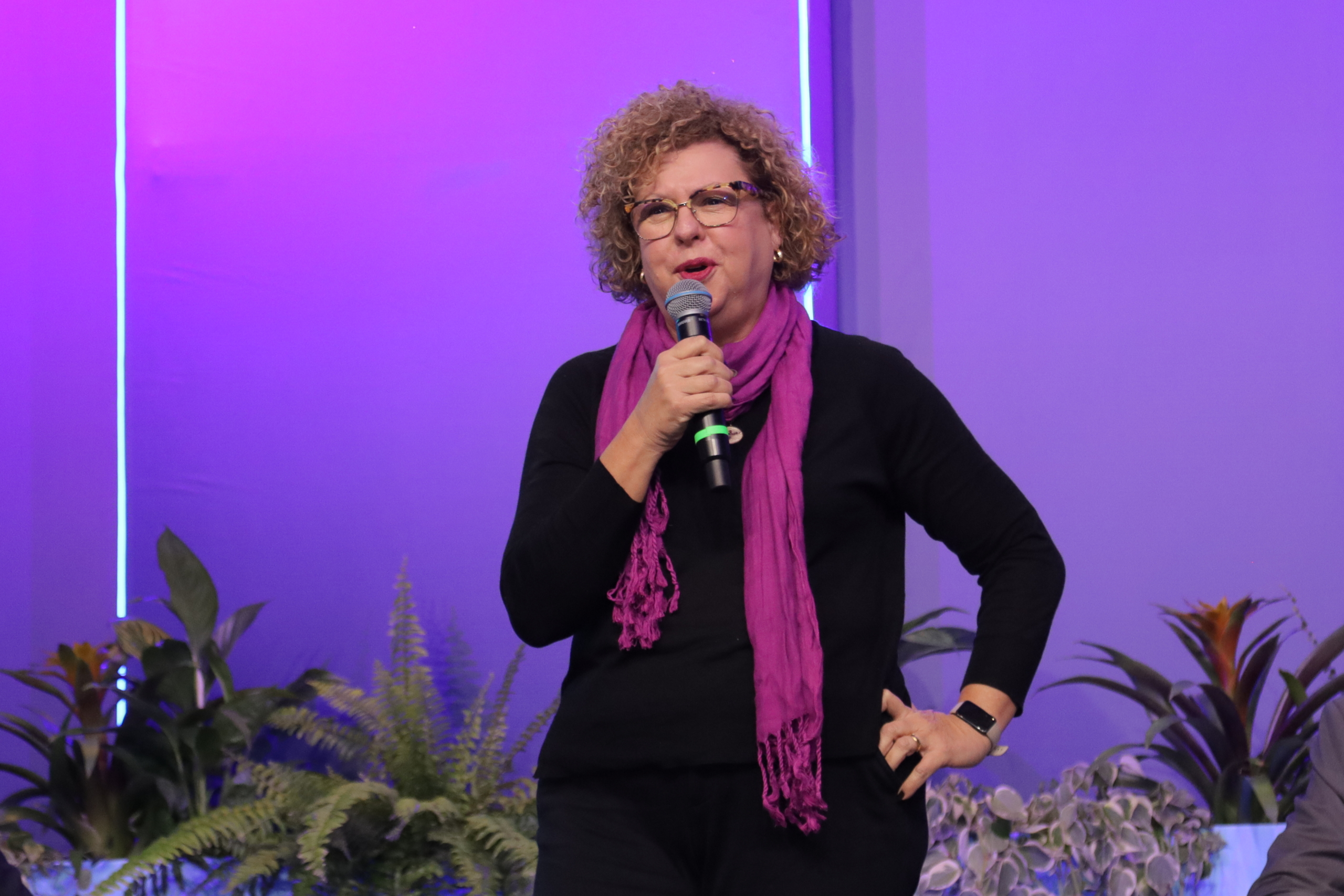Transforming Together 2025 positions entrepreneurship at the center of the public agenda

The main stage of the Transformar Juntos event placed entrepreneurship at the center of the regional development debate. Those who attended the panel "Entrepreneurship as a Government Policy," held on Thursday morning (24), had the opportunity to learn about examples of public initiatives that promote socio-productive inclusion and create a favorable business environment, through the union of engaged leaders in their territories.
As moderator of the discussion, Bruno Quick, technical director of Sebrae Nacional, took the opportunity to celebrate the evolution of public policies aimed at small businesses in recent decades. He highlighted the creation of policies that allowed small businesses to participate in public procurement, the emergence of the individual microentrepreneur (MEI), and the expansion of the Simples Nacional system.

Today, we see federal, state, and municipal governments prioritizing entrepreneurship. We know there's much to be done, we know how to do it, and, most importantly, we understand why it's worth doing. But it can only be done if we work together.
Bruno Quick, technical director of Sebrae Nacional.
One of the invited panelists was Luiz Carlos Everton de Farias, Secretary of Socioeconomic Inclusion at the Ministry of Development and Social Assistance, Family and Fight Against Hunger (MDS). He presented data on the Acredita no Primeiro Passo program, which encourages entrepreneurship as an alternative for people receiving social assistance.

We needed to design a scalable socioeconomic inclusion program. We spent a year discussing the program with all sectors of society and reached a consensus that lifting people out of poverty requires training and qualifications for employment or entrepreneurship.
Luiz Carlos Everton de Farias, Secretary of Socioeconomic Inclusion of the MDS.
In addition to Farias, Júnior Marreca, Secretary of Industry and Commerce of Maranhão and Vice President of the Democratic Renewal Party (PRD), also participated in the panel. During his participation, he presented several state government initiatives related to fostering entrepreneurship, including the partnership with Sebrae (Brazilian State Institute of Education) through the Entrepreneurial City program. There are 170 Entrepreneur Rooms in Maranhão, covering 76% of the state's municipalities.
"All policies are delivering significant results, and the government has focused on entrepreneurship to generate jobs and income. The partnership with Sebrae is crucial. We have formalized more than 33,000 businesses in the first half of 2025 alone, the highest number in history," he commented.
On the occasion, Jorge Veneza, Manager of the Territorial Development and Public Policy Unit at Sebrae in Mato Grosso do Sul (MS), presented the new model of the Entrepreneurial City program developed in the state. He explained that the initiative needed to be adapted to focus more attention on eight municipalities that did not achieve satisfactory indicators within the government's development perspective.
"The state government understands that Sebrae acts as a tool that orchestrates not only the state's actions, but also the actions of other partners in the S System that can contribute to this process. It also understands that we act as a hub that coordinates all actions at all levels of government," he emphasized.
To close the debate, Sebrae Nacional Territorial Development Analyst Helena Rêgo shared the sentiment that should unite leaders in favor of territorial development.

I believe that what makes a difference in the country and truly transforms people's lives are people. Each of you here, within your territory, in your municipality, has the ability to transform lives.
Helena Rêgo, Territorial Development Analyst at Sebrae Nacional.
Women who transform
The morning of the second day of the event also featured the participation of women who hold leadership roles in their fields. The panel "Transformative Leadership" was moderated by Sandra Amarilha, technical director of Sebrae Mato Grosso do Sul.

Among the panelists was Amanda Costa, an expert in climate justice, global governance, and youth engagement strategies. At 25, she founded the Perifa Sustentável institute. She shared her journey and emphasized the importance of women, especially Black women from peripheral areas like herself, occupying positions of power.
"As an activist, I'm in favor of us 'hacking' the system strategically. We need to understand it from the inside out. Second, we, Black women, need to understand the system's code because before we open our mouths, we are judged by our appearance," she emphasized.
The discussion also featured former mayor of Monteiro Lobato, São Paulo, Daniela de Cássia, who works as a consultant and advisor for Smart Solution. She also shared her journey in public service leading up to the mayoralty, and advocated for more empathetic and inclusive leadership. "I've learned that you can't make any change alone; to achieve that, you need to listen to others," she emphasized.
Helga Wiederhecker, Science Leader at the international organization WWF in Brazil, highlighted the importance of leading with a focus on diversity. "When working with sustainability and biodiversity at WWF, it's crucial to understand that solutions depend on diversity, including that of leadership," she noted.
agenciasebrae





